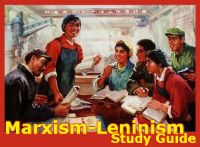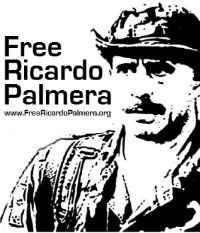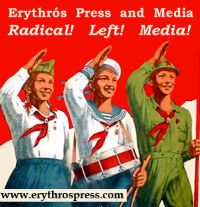Due to a recent discussion about “dogmatism” and revisionism regarding a polemic from Mike Ely of the Kasama Project against the Marxist-Leninist Study Guide here on this site, it seems valuable to look closely at what principles we should consider fundamental to Marxism-Leninism. To that end, here is a set of quotes from the 1991 document “Reaffirm our Basic Principles and Carry the Revolution Forward” by the Communist Party of the Philippines concerning methods of study. This document guided the “Second Great Rectification Movement” launched by the CPP in 1992. This document is here followed by an excerpt from the 1999 Declaration of the International Communist Seminar defining basic Marxist-Leninist principles.
On Marxist-Leninist study in the Philippine Revolution, from “Reaffirm our basic principles” by the CPP:
The Party has succeeded in integrating the universal theory of Marxism-Leninism with the concrete practice of the Philippine revolution. It has clarified Philippine history, the semicolonial and semifeudal character of Philippine society, the new-democratic stage of the Philippine revolution, the leading class, all the motive forces and adversaries, the strategy and tactics of people’s war, the main tasks and socialist perspective of the Philippine revolution.
 By clarifying these, the Party has been able to provide the theoretical and political guidance to the revolutionary movement as never done before in Philippine history. The revolutionary movement of the people has won victories surpassing those of the old democratic revolution and all attempts to resume the Philippine revolution before 1968.
By clarifying these, the Party has been able to provide the theoretical and political guidance to the revolutionary movement as never done before in Philippine history. The revolutionary movement of the people has won victories surpassing those of the old democratic revolution and all attempts to resume the Philippine revolution before 1968.
The documents of the Party’s reestablishment and subsequent basic documents of the Party are the study materials for the basic level of Party education. Further, there are the distinctive content and study materials of the intermediate and advanced levels of Party education.
The intermediate level studies more thoroughly than the basic level our own revolutionary experience, compares it with and draws lessons from the most significant and most relevant experiences abroad in terms of building the Party, the people’s army and the united front in the new democratic revolution. This entails the evaluation of the revolutionary experience of our Party and that of others and gives due recognition to the significance and relevance of the Chinese, Vietnamese, Korean, Cuban and other revolutions to the Philippine revolution.
The advanced level provides the Party members with a comprehensive and profound knowledge of materialist philosophy, historical materialism, political economy, scientific socialism and the world revolution as taught by such great communist thinkers and leaders as Marx, Engels, Lenin, Stalin, Mao and Ho. This provides us with the most extensive and deepgoing understanding of the basic principles of the proletarian revolution and proletarian dictatorship.
All Party members are enjoined to engage in theoretical study not only through formal courses but also in the course of revolutionary mass struggle and in the course of Party life in leading organs and in basic units and to strive to raise their collective experience and practical knowledge to the level of theory. They must ceaselessly develop their Marxist-Leninist stand, viewpoint and method.
Since the late 1970s, however, there has been a gross neglect of theoretical education and a gross inadequacy of study courses and materials. Worse, there has been a departure from a structure of theoretical education that is based on our revolutionary experience, that is suitable to our situation and revolutionary struggle and that properly takes into account the significance and relevance of the advances of Marxist-Leninist theory and practice abroad.
We must be able to evaluate the significance and relevance or applicability of the teachings of all the great communist thinkers and leaders. We must know how the teachings can shed light on our conditions and struggle. We must know the historic conditions from which the teachings have arisen. We must not take any successful foreign revolution or any segment of it out of the concrete context of its own national history as well as of world history.
The works of one great communist thinker should not be dogmatically used to squeeze out those of another, especially if the works of the latter which are more relevant in terms of historical and social conditions and can shed more direct light on the Philippine revolution. Lesser figures of revolutions that do not reach the socialist stage should not be evaluated more highly than any great communist thinker in an eclectic or dogmatic manner.
Our cardinal principles, from the 1999 Declaration of the International Communist Seminar:
26. The victories of the international working-class and socialism in the era of Lenin, Stalin and Mao as well as the revisionist treacheries corroborate seven essential theses of Marxism-Leninism.
I
27. Under capitalism, the State is an instrument of bourgeois domination against the workers. The socialist revolution must completely destroy this tool of bourgeois oppression and replace it with a new, proletarian State.
28. The bourgeois states apply a form of democracy in accord with their class nature. Liberals talk about democracy in the abstract to mask the class character of bourgeois democracy, but Marxists always insist upon the following question: “Democracy for which class?”. If there is democracy for the exploiters, there can be no real democracy for the exploited.
29. Under the capitalist regime, the democratic republic and general elections are instruments of the dictatorship of capital. Their aim is to give a democratic appearance to a system that is fundamentally built on the all-pervasive power of big capital, the dominant bourgeoisie and its forces of repression.
30. The parliament is not the real center of bourgeois power. The real power is in the hands of those who own the banks and the large companies. The parliament gives a democratic appearance to decisions which are taken in discreet bourgeois circles. In any serious crisis, the parliament is put aside by exceptional regimes. The communists can participate to the elections and enter bourgeois parliaments in order to prepare the masses to their revolutionary tasks.
II
31. As soon as liberal capitalism transformed itself into monopoly capitalism, it entered the stage of imperialism. The bourgeois state has become more and more an appendix of the monopolies. The hideous character of the oppression of the working masses is reinforced.

New People's Army of the Philippines fighter, Ka Mohan, preparing for her part in the Party study course to be conducted by their unit.
32. Imperialism is the negation of democracy, it means reaction on all fronts. Fascisation and fascism are expressions of the inevitable degeneration of bourgeois democracy in the imperialist era. At the present moment, the imperialist countries still have some of the outward forms of bourgeois democracy, while at the same time precipitating the regime towards fascism, generalised surveillance of the population and terrorist violence against popular revolts. After the barbaric war against Iraq, they undertook activities of subversion, interference and aggression to dismember Yugoslavia and launched into a war of massive destruction against that country. The ex-socialist countries like Russia and Albania demonstrate perfectly the parasitic character of the present-day bourgeoisie and the decay of its whole economic and political system: production has fallen by more than 50% and the elections only mask the domination of the mafia and other criminal organisations over these countries.
33. In the field of foreign policy, imperialism leads to wars of conquest against the less developed countries and to world wars between imperialist powers. World War I initiated the historical era of imperialism and proletarian revolution.
34. By sharpening all contradictions of capitalism, imperialism demonstrates the necessity of socialist revolution. Under imperialism, the gigantic productive forces can only be maintained within the obsolete bounds of private property by means of oppression, terror and war. Today, new technological revolutions make human work phenomenally productive. However, as production is carried out with the single aim of maximalising the profits of the owners of the means of production, the vast majority of humanity becomes “superfluous” and is plunged into unbearable physical and intellectual destitution. Imperialism denies a large part of humanity the most elementary human right, the right to life. Only the socialist revolution makes it possible to put the unlimited productive capacities of human work at the service of the harmonious development of the entire human race. Only socialist revolution can allow the workers to avoid the barbarism of imperialist wars.
III
35. The great Revolution of October 1917 confirmed the truth of the Marxist-Leninist theory of socialist revolution, the only path leading to the victory of the proletariat in its struggle against capital. All reformist paths, advocating gradual reform as a means of achieving the liberation of the proletariat, lead in the end to the strengthening of bourgeois domination and social inequality and the perfecting of the means of exploitation.
36. The bourgeoisie has always used the most ferocious violence each time the toiling masses wanted to overthrow their unjust and cruel reign. Revolution implies revolutionary violence, the midwife of the new society. Without violent revolution, it is impossible for the proletarian state to replace the bourgeois state.
37. Lenin stressed the fact that revolutionaries must be ready to make the most important sacrifices, to go through the test of civil war, lest they go over to menshevik positions of reconciliation with the terrorist bourgeoisie.
IV
38. The socialist state may assume various forms, but, as for its class nature, it will be the revolutionary power of the working class, the dictatorship of the proletariat.
39. Under socialism, the transition to communism and class struggle do not come to a halt, but change their forms of expression. The remnants and influences of capitalism will remain during a relatively long period. Even after the construction of the foundations of socialism and the abolition of capitalist property, there will be an objective, material basis for the sharpening of former conflicts and the appearance of new ones. The underestimation of these contradictions can transform them into antagonisms, undermining the socialist structure, strengthening the counter-revolutionary elements and allowing the return to capitalism.
40. Following directly on Marx, Lenin said that the dictatorship of the proletariat had to be maintained in the Soviet Union as long as there existed bourgeois and petit-bourgeois forces, bureaucratism, bourgeois and petit-bourgeois ideological currents; as long as international capitalism could find support, and the differences between manual and intellectual work, between country and town remained.
41. The proletariat needs the State of the dictatorship of the proletariat to reduce its class enemies to silence. The revolution therefore is accomplished only when the communists have realised their final objective: the classless society, where the menace of capitalism, coming from the inside as well as the outside, has disappeared, when the State progressively withers away, when the construction of communism takes place.
V
42. Experience has convincingly demonstrated that the economic base for the dictatorship of the proletariat is the collective ownership of the means of production and the planned production of goods directly in the service of society. The production of consumer goods aims to satisfy the material and cultural needs of the workers. The experience of the counter-revolution in the ex-socialist countries has confirmed that the market economy, where production is characterised by anarchy, is the economic base for the restoration of capitalism and the re-establishment of bourgeois dictatorship.
43. The objective of capitalist production is to increase the surplus value wrested from the workers by the capitalists, maximum profit for each individual capitalist. The aim of socialist production is the realisation of the well-being of the working masses as well as the development and blooming of all members of society in the framework of the objective possibilities of the given period.
44. Thanks to the dictatorship of the proletariat and the socialist planned economy, the Soviet Union was able to solve many fundamental problems that no capitalist country will ever be able to solve. The Soviet Union was able to bring about the equality and fraternal cooperation of more than 100 nationalities, full employment, free schooling and medical care, access to science and culture, practically free housing, social services and public transportation. No capitalist country has ever been able to guarantee its population the security offered by the Soviet Union under socialism.
VI
45. The Soviet Union’s experience demonstrates the essential role of the revolutionary party of the proletariat as the leading core of the revolution and the construction of the new socialist society.
46. The Bolshevik Party of Lenin and Stalin was a revolutionary party in the era of imperialism and proletarian revolution. Lenin’s theory concerning the Bolshevik-type party, vanguard, organised and disciplined detachment of the working class and the toiling masses, remains valid today.
47. To work out its political line, the Party analyzes class struggles at the national and international levels from the point of view of the working-class and in the light of Marxism-Leninism. It maintains its revolutionary spirit by putting into practice the principles of democratic centralism, control and verification of tasks accomplished, criticism and self-criticism and struggle against opportunism. Its strength resides in its confidence in Marxism-Leninism, its strong bonds with the labouring masses and its long-lasting struggle for their interests.
[VII]
48. Proletarian internationalism is a fundamental element that distinguishes the communist parties from all others. In the national struggles of the workers, the communists set forth and promote their interests independent of nationality and shared by the proletariat of the whole world.
49. Marx stated: “The emancipation of the proletariat cannot but be an international fact; attempting to make it a purely national fact is rendering it impossible”. The revolution may be national in its form, the proletariat can overthrow the bourgeoisie in one country. But in its content, the revolution is always international, forming part of the world movement for the emancipation of the working class.
50. Lenin and Stalin always considered the building and defense of socialism in the Soviet Union as an integral part of the historical struggle for the triumph of the workers’ cause all over the world.

















there are wrong lines in the CPP in the past years suck as “Left” and Right Opportunism. Let’s stop this trend before we lose it